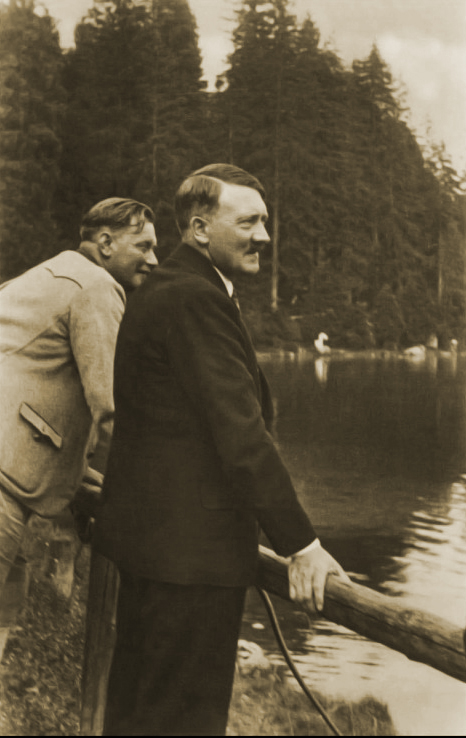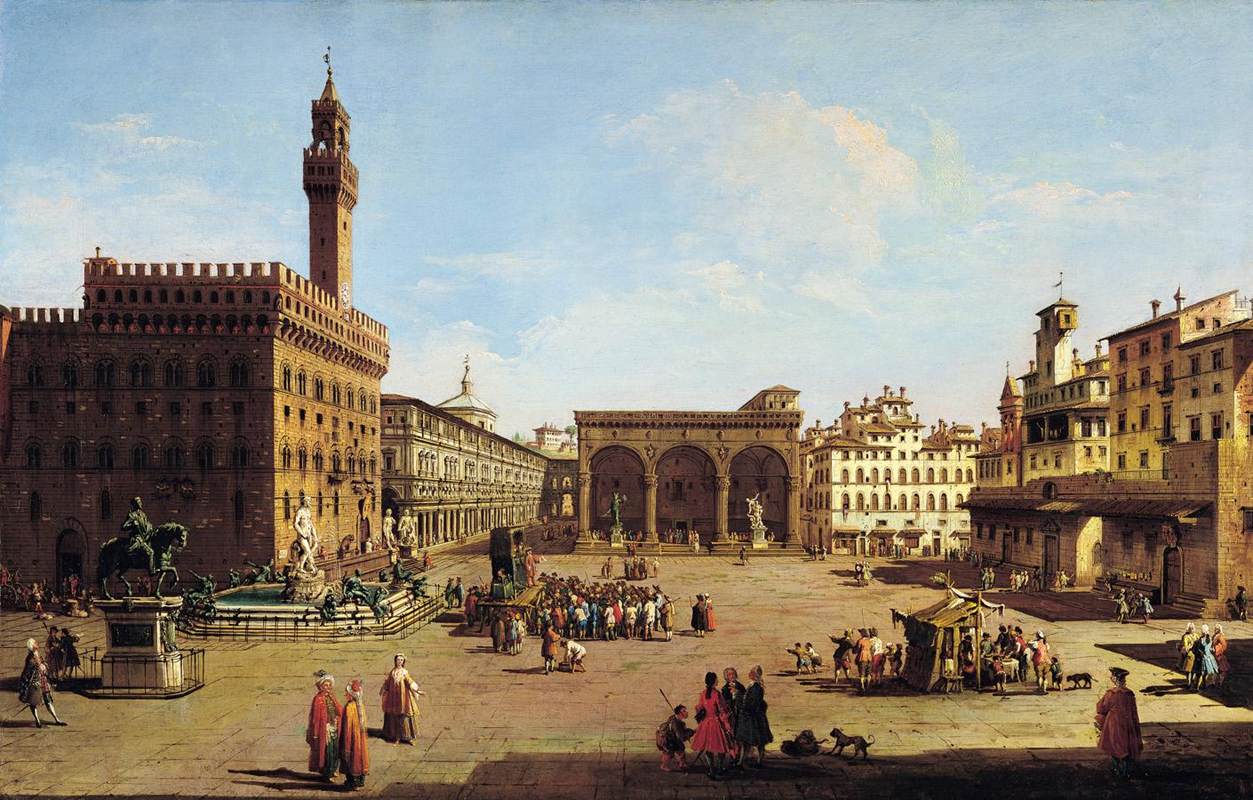Henry Wallis: The Death of Thomas Chatterton. The subject of
the painting was the poet who died after he poisoned himself.
______ 卐 ______
“Even the pro-white ‘movement’ seems beholden to this irresistible death-wish.”
The revelation has come to me that liberals, conservatives and white nationalists are, ultimately, on the same fucking page. The only behavioral difference between them is speed.
Gentile liberals, led by the Jews, are driving the train on the road to white extinction on high speed. Non-Jew conservatives are merely trying to lower the speed by softly hitting the break here and there to slightly hinder the liberals’ ways. White nationalists, already outside the train, are heading exactly toward the same direction but at a much slower, walking pace.
Let us compare the values of the self-styled White Nationalists with the real defenders of the Aryan race, the National Socialists:
• Hitler and the NS men organized themselves in a political party—the very first, elemental step to make a difference in the real world. The WN cyber-based “movement” on the other hand refuses to leave the homely comfort zone. Nationalists who are doing this: Every single “neonazi,” white nationalist, southern nationalist or conservative racialist today, including old internet sites such as Stormfront, American Renaissance, VDARE and Majority Rights. None of them has dared to form a racist party. (In the case of Greece’s Golden Dawn, they are not Aryans.)
• The NS men clearly defined their race as Germanic (which includes Austria, the Scandinavian countries, the Netherlands, Switzerland and even some parts of the old Soviet Union; furthermore, Hitler dreamt to share the world with the Anglo-Saxons, especially with the English Empire). Those who advocate WN on the other hand are predominately anti-nordicists, and anti-eugenicists to the core. Like the American “conservatives” of the Republican Party who treat mestizos as equals, in order not to offend Mediterranean sensibilities they refuse to acknowledge that the standard for whiteness is the Nordic type. Many have no objection to grant amnesty to the off-white population in Europe, even if that means the eventual mongrelization of the real whites. Nationalists who are doing this: Most bloggers and commenters over the boards, especially at the WN webzine Counter-Currents Publishing.
• Hitler and the inner NS party abandoned Christianity, a Levantine-inspired religion which only enfeebles the Germanic peoples. Many WNsts, incapable of radical departures from our parents’ religion, unabashedly proclaim their Christianity and have blinded themselves about the toxicity of the Galilean cult. Nationalists who are doing this: Stormfront, the Traditionalist Youth Network led by the two Matts, James Edwards of The Political Cesspool, Occidental Dissent, the neonazi Daily Stormer and even Metapedia.
• The NS men, even the Catholics and Protestants, gave up Christian axiology and became pragmatic Nietzscheans. On the other hand Christian and secular WNsts subscribe it: both groups strive to appear as the proverbial “good Christians.” The neonazi Carolyn Yeager and the historian Arthur Kemp even have tried to rationalize away the Germans’ legit will to conquer those Slavs who had delivered their nation to the Bolshevik Jews. (Clarification: George Lincoln Rockwell and William L. Pierce flourished before the term “white nationalist” became fashionable. They were not WNsts but rather followed the spirit of Hitlerian National Socialism. Neither subscribed the Christian scruples regarding our interaction with the radical Other.) White Nationalists who still subscribe Christian axiology: With the exception of VNN Forum virtually all of them. Moreover, like Hunter Wallace of Occidental Dissent and many commenters in those forums, racialists freak out piously when a lone wolf makes a scene leaving some enemy casualties behind. Even Irmin Vinson, who wrote an apologetic book about Hitler, did this.
• Hitler and the NS men took for granted sexual polarity. Like all militaristic Western cultures they subscribed patriarchy—no woman was allowed in the leadership class. WN males on the other hand have become feminized beyond recognition. Most of them have no problem at all with the feminism that has been wreaking havoc in the fair race and the morals of the fair sex since the 1960s. The NS men had an absolute will to biological fertility. Feminized WNsts have no problem allowing career women in their conferences or practicing ethnosuicidal birth control. Nationalists who are doing this: With the exception of Andrew Anglin all notable WN websites and conferences, including the London Forum which admits women speakers, and even “revolutionary” or eccentric groups like those of Harold Covington and Sebastian Ronin.
• Ethos. The German National Socialists simply and straightforwardly pursued the fulfillment of their duty to the point of dying heroically for the fate of their race. Like the Republican Romans their ethos was severe, Stoic and brutal. Feminized WNsts on the other hand still live under the illusion of the American dream, or the infantile pursuit of universal happiness. Like the late imperial Romans they are hedonists. They lack the Teutonic spirit of tribal sacrifice and the saying, “We don’t stand a chance unless our men become killing machines and our women birthing machines” sounds like antimusic to their ears. Nationalists unwilling to sacrifice themselves for the 14/88 words: All of them! Who lusts to become a bloodthirsty soldier or literally force our spoiled women to become birthing machines? With the exception of the late David Lane, Who treasures in his heart the history of the rape of the Sabine women which gave birth to the virile Republican Rome?
• Enemy #1: materialism / consumerism. Hitler and the NS men pursued collectivism, honor, structure, order and militarism always in harmony with the aesthetic drive of the Aryan soul. In Uncle Adolf’s table talks for example the subjects of the most beautiful Western architecture, painting and classical music are omnipresent as the blueprints of what the Reich would be after the consolidation of his conquests. On the other hand, even those WNsts who think like real men and advocate a final solution to the non-Gentile problem pursue the freedom of the civilian societies and, to boot, the cult of the atomized individual: libertarianism. In WN forums you don’t see much criticism of larger factors of white decline than the Jewish problem such as the mercantile societies that degenerated in capitalism and, presently, full-blown hedonistic materialism: the uttermost corruptor of the Aryan soul for any honest reader of the History of the white race. Nationalists who have not assimilated the wisdom behind the saying “The Cathedrals were built to the glory of God; New York was built to the glory of Mammon”: countless, including Alex Linder of Vanguard News Network.
• The NS men aimed for war and conquest. Adolf Hitler said: “Any other course that does not lead to the strongest race ruling mankind, means mankind has passed the peak of its development and the end will not be the reign of any supreme moral idea, but degeneration into barbarism and eventually chaos.” Feminized WNsts on the other hand cherish democracy, pacifism and even the secularists make the sign of the holy cross when sighting true Aryan militarism. Compare the Führer’s words with a statement of Kevin MacDonald during an interview by a Jew (!) about the differences between WN and NS: “The white advocacy movement, as I see it, is not exterminating anybody. It is simply going to assert our interests within the democratic form of government that we have… It doesn’t advocate conquering Mexico, you know—anything like that. There are lots of differences.” White nationalists who think like the professor and his Occidental Observer: All Christian nationalists; the (European) New Right and the American New Right—which are not Christian—, the poseurs of Alternative Right (and Richard Spencer’s Radix). In his videos David Duke even shares the Christian sense of compassion for the colored races.
• Finally, Hitler and the NS men recognized the problem of cultural degeneracy in general and degenerate music in particular. Hans Severus Ziegler opened the exhibition “Degenerate music” in 1937 in Düsseldorf. Later, it was presented in Weimar, Munich and Vienna. The hedonist WNsts on the other hand enjoy themselves with the American-Negro phenomenon of rock antimusic. They are basically wiggers. The commenter whose words I quoted in the epigraph has also said: “Degenerate music leads to the extinction of the White race. It is racially suicidal.” Here is a good quote from Encyclopedia Dramatica:
Whereas the original Nazis actually maintained their German culture, celebrating, appreciating and reveling in German art, literature and music, modern-day Nazis get their culture by listening to a lot of White Power Rock’n’Roll. Never mind the fact that rock’n’roll is essentially African-American folk music borrowed by the White Man, and that “borrowing” something from another culture is the definition of multiculturalism and that Hitler devoted an entire chapter of Mein Kampf describing how the degradation of Aryan culture would lead to the extinction of the white man.
Nationalists who have promoted degenerate music: countless since the old podcasts by Kevin Strom, and more recently Alex Kurtagić, Greg Johnson and many, many more. Virtually all male hosts, guest speakers and listeners of WN radio podcasts love simian music, including some internet shows hosted by one of our best European minds, Tomislav Sunić. In a nutshell, presently all white racists, even the sophisticate, are inadvertently committing racial suicide.
My priesthood
From this post henceforth I’ll add further entries only if I see big events in the news (more spectacular events than the Jihad attacks in Paris and San Bernardino last year). The inescapable fact is that in WN there is no actual resistance against the genocidal mass immigration of non-whites and forced fraternisation with them. Apparently George L. Rockwell was the last National Socialist of the West. Being a true Nazi involves forming a fascist party in Europe, or much more difficult, in North America—something that contemporary racists not dare do.
Trying to summon or discipline bourgeois racists that don’t leave the internet destroys the morale of the true fanatic: the priest of the 14 words. Unless these cowards become brave, unlikely in a race that is presumed dead, I must do something else. Pity!: with no Aryan men offering real resistance to the System I have no choice but to try to fulfill my priesthood alone.
Here’s my plan as a hermit. My books on childrearing [1] could help the future ethnostate, which capital should already be in Berlin had it not been for the Anglo-Saxons. But this State would only be reborn if this race repents from its unforgivable sin—if that is possible.
 [1] I refer not only to Hojas Susurrantes but to two more series of several books each: Extermination and From St Francis to Himmler.
[1] I refer not only to Hojas Susurrantes but to two more series of several books each: Extermination and From St Francis to Himmler.
My working hypothesis is that non-abusive childrearing will prevent both mental disorders and even treason in the Aryan ethnostate.
September update
Michael Bell has recently authored “The caste system of the Alt Right” that shows an image of the Egyptian pyramids at the top. Instead, the editor should have chosen the symbol of the truncated square pyramid, so common in the architecture of the Mesoamerican civilizations.
In his flawed caste system Bell places white nationalists at the top of the pyramid, but they in fact belong to a lower caste, as explained above (see also the recent interview of me by Jake that has been published at The Right Stuff).
It is the National Socialists and a couple of American fighters, Rockwell and Pierce, who were at the top of the complete square pyramid. Bell also omitted Linder who, as an exterminationist (and an anti-Christian) could share a place at the top.
This said, after Hillary Clinton’s blunder in delivering an anti-Altright speech, it has been mainstreamed. Bell’s article may still be useful. Newcomers can now map the Altright thanks to that article, especially the castes at the very bottom of the pyramid.




